“And then the day will come, the last day that things will hold together. It’s our turn to patrol today, and John comes in, ready to go.
“‘Your turn to carry this,’ he’ll say, tossing me the duffel bag with yellow flags. The tops of his hands and arms will be shiny and hairless, scarred from some burning that he can’t remember.
“‘How do you know you were burned, John? Maybe they were always like that.’
“‘These scars,’ he’ll say, pointing to his shiny skin, ‘are from fire. You’re not born like that.’
“This is pure reality now. Our lines are written as we speak them.
“I’ll open the bag and count the flags. We’ll take the east stairs down, past the endless undecipherable graffiti in its faded yellow and blue and brown foreignness, and step out into the warm sunlight. To our right is the library, and beyond that the iron gate that leads out and into the city.
“We are going to see if the flags that we placed last week are still there. They usually aren’t. Usually, they have been replaced with red ones, and because of this, and also because the helicopters that come sometimes drop red leaflets with foreign words printed on them, we have come to associate red with dangerous strangers. We will find a spot about a mile away from campus — as far as it is known to be safe to go — and put the flags, stick first, into the ground of some vacant lot or grassy area or yard of an abandoned house. We will come back one week later to see if they have been taken or rearranged. We call this peace talks. We call this negotiation.
“In fact, we are going there now, to the house they said was mine, to the backyard beneath the giant maple tree with the rope swing where last week we planted ten yellow flags in a straight line in the weedy yard that stretches in a narrow swath between the back of the house and the garage with its sagging roof.
“There are no indications of other creatures — human or otherwise — as we make our way down the crumbling highway, in parts overgrown with weeds and dry grass. The enormous street lights could be but can’t be movie lights. We’ll carry our guns in our hands, cocked, because we are supposed to, because last year Valerie and her partner Leonard went out on one such patrol and didn’t come back and were found, their faces smashed-in with rocks.
“We’ll follow the highway and walk up the sloping exit ramp whose green sign we cannot read. There will be, in fact, nothing we can read. Not the signs. Not the newspapers in the grocery stores. Not the labels on food. Not the books in the library. We feel that we ought to be able to read these things, that they are, or were, part of our world, that because we can talk with each other in a language that we all know, we should be able to decipher the written symbols around us. But none of us can. They are just hash marks, severe lines in black against white, a secret code of a lost civilization.
“John is one of those who believes it is our own language that we have forgotten, that along with forgetting about our past we have also forgotten how to read.
“‘But we can still talk, John,’ I’ll say, the sun beating down on us like some big-budget movie production lamp. ‘We haven’t forgotten how to talk.’
“‘That’s because we learned that first. It was more deeply embedded in who we are. Like our basic personalities. These aren’t things you forget.’
“The rest of us, on the other hand, think that it’s the world that changed, not us. That the language around us doesn’t mean anything because it never did — it’s not our language — and that if we saw our language, we would recognize it. We’ve tried to write, but it’s just scribble; we know how to make the sounds with our mouths, but not with our hands. It should be easy to do. It should be easy to take what we say and put it on paper, but we don’t know how.
“‘Is this the place?’ John will say. We’ll be in front of the house spray painted with an enormous snake that’s eating its tail. The chimney has been pulled down, like all the other chimneys on all the other houses, but this time they have left the rope amidst the bricks, like a collapsed lasso. It’s rare to find the ropes, and John coils it up and puts it in his bag.
“The spray paint on the bricks, it looks wet, and when I touch it the tips of my fingers turn red. I’ll hold my hand up to John to warn him and we quickly turn to leave. But it is too late. Touching the red paint was the wrong thing to do, and the very first shot goes through John’s neck and he leaps in the air and falls to the ground, twisted on his back like an S. So much blood is already out of him, pooling at my feet like someone else’s victory. I’ll run for the street and keep waiting for the shot. Impossibly, I worry about hurting my face or breaking my nose when I fall. I worry about not being able to stop myself from falling down the wrong way, and scuffing my elbows or breaking my wrist. But there is no shot, and after only a few minutes I am exhausted but keep running at the ramp that takes me back onto the highway.
“I’ll ditch my gun and my duffel bag. I’ll throw off my jacket. Every channel in my head is opening up full, screaming. I am running for only one thing now. For Katy. I want to touch her tattoo. I want to make her not sad. I want to make the tapes better, and so full of mystery that she will smile at me, and offer me one of her cigarettes, and the orange sun will finally creak through, and there will be the green of trees, of willows even, and the touch of her fingers to mine as she cups the match between us…” and here Laing ends as everything must end and of the missing children they have not been found as far as I know, even all these years after my interlude with Laing in Wisconsin. Of that last meeting I can say that there was a tension in the air and for the first time I felt the old fear return, the sort of fear that passes away with childhood, creeping up my spine and looking back on it now I attribute it to Laing. My version of what happened at our last meeting — and I say happened because something did happen and I say version because everything is a version of itself — is that Laing thought he had let me in on a secret and that just before I was to depart he feared I might not keep it and so thought about threatening or hurting me, or worse. In other words the fear I felt was based on the real possibility that Laing might do to me what he had done to the films and as I’m writing this I recall a detail that seemed so obvious, so utterly obvious, that I hadn’t even considered it: the collapsed metal barrel in the scrubby field adjacent to the motel. I’m ashamed of the wild ideas that fill my head. The barrel (that smelled of rust), the destroyed films, the missing children, that’s all speculation, so remote from the banality of Laing, so fantastical. No, it’s not the barrel that haunts me, or what might have been burned in it, or the HAVE YOU SEEN ME? flyer I found in Laing’s room. Not even the death of Emily. What haunts me is that I was successful. One cannot absolve oneself, of course. It takes another. Absolution — the absolution of moral sins — must be granted by another and I remember driving away from that place and having the strange feeling that it was all a set and that it was being torn down or deconstructed the moment I left, the workers coming out with their sweaty faces from their hiding places, the hidden mics removed from the back of the throne chair and Laing himself undergoing a procedure right there on the motel room bed to extricate his face from the mask which had been sewn across it and screaming for something far stronger than bourbon and yet… of course I knew that nothing of the sort was happening. Laing and I had entered each other’s lives for three brief days, and yet during that time something — someone — had been resurrected, I was sure of it and I floored it, I can tell you, I put the pedal to the metal in that crappy van while the magic still held and tear-assed it back to Pennsylvania knowing beyond reason that those three days in hell (spent with a spirit in prison, as if Laing could be called anything but that) had opened up something new and brief and astonishing and that Emily would be sitting there in the sunlight at the kitchen table waiting for me with a sly smile as if to say: Father, you are in it now, you are really in it now.
Читать дальше
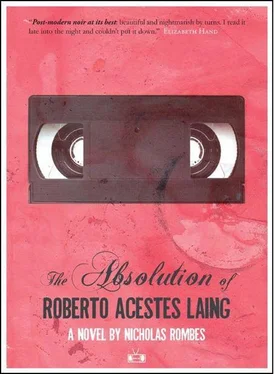
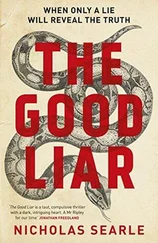
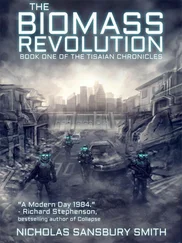
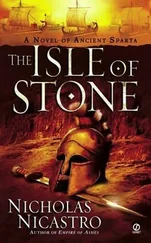

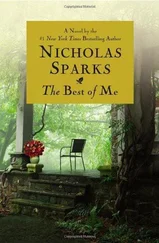
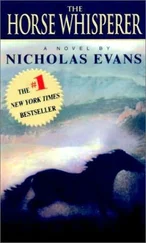
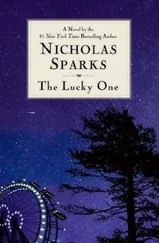
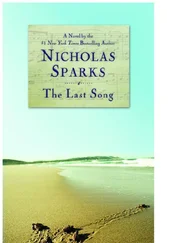
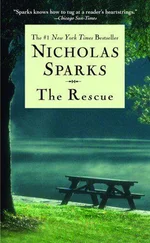


![Nicholas Timmins - The Five Giants [New Edition] - A Biography of the Welfare State](/books/701739/nicholas-timmins-the-five-giants-new-edition-a-thumb.webp)